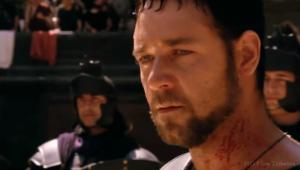Emperor: A Hidden Treasure?

Emperor tells an important yet little known story. In the immediate aftermath of the Japanese surrender in World War II, General Douglas MacArthur arrived in Japan with his staff to lead the occupation. But before the rebuilding of the country and its government could begin, the issue of what to do with the Japanese military and political leadership had to be dealt withmost importantly Emperor Hirohito. Many in Washington, and in the U.S. public as well, wanted him tried and executed as a war criminal. But was he complicit in the execution of the war? Or was he simply a figurehead who had little or no control over the military junta that actually ruled the country and made all of the war decisions, from Pearl Harbor to the 1945 capitulation?
Emperor tells that story, though not without more than a little of Hollywood’s typical creative massaging. The time frame is compressed, an unlikely love story is added (not not central to the general plot, though it does add an important character in the girl’s uncle), and at least one former Japanese official briefly argues that there was plenty of guilt to go around on both sides. According to the included commentary track, the latter was done to include the perspective of the wartime Japanese leadership.
Much of the plot revolves around one-star General Bonner Fellers (a real historical character, though arguably without that love interest!). Fellers (in an understated performance by Matthew Fox, best known for his work in TV’s Lost) understands the Japanese better than most of his compatriots, or at least as well as any American of the era could. He had spent time in the country before the war, and knows what harsh or even fatal punishment of the revered emperor could mean to the conduct of the peace.
MacArthur, brilliantly played by Tommy Lee Jones, isn’t the lead here, but he owns all of his scenes. He assigns Fellers the task of proving or disproving the Emperor’s guilt, and gives him 10 days to do it (in reality, the investigation took much longer). Better treated here than in many cinematic depictions, MacArthur is clearly dedicated to rebuilding Japan along democratic lines. It would be no exaggeration to call him the father of modern Japan. The dictatorial powers he needed to accomplish this hints at the dual meaning of the film’s title.
A number of the Japanese characters are standouts, and give the film much of its surprising emotional resonance. Clearly this film could not have been made in 1945 or even close to that time, but today we can better understand a defeated enemy that would ultimately become a peaceful, resourceful friend.
There’s little that’s at all dramatic in this Blu-ray’s audio and video presentation. Apart from the explosive Lionsgate studio logo that opens the disc, there’s not much demo-worthy activity in the soundtrack, apart from a few action-heavy flashback scenes near the end. They’re effective, but brief. The major audio treat here is the subtle, evocative, score by British composer Alex Heffes, embellished at times by subtle Asian touches. Heffes was previously unknown to me, but he does have a long filmography. His most recent major work was the score for the recent TV remake of the 70s mini-series Roots.
There’s also nothing spectacular in the rich, 2.35:1 video. It’s colorful where needed and mono-toned where that’s more appropriate. The images are consistently crisp, with good blacks in several important, dark scenes.
This might not be your first choice for showing off your home theater system, but it’s ideal for family and guests fed up with the unending spate of Hollywood’s kiss-kiss, bang-bang, boom-chicka-boom spectacles. And Amazon is practically giving it away at a fire-sale price. In revisiting it for this blog, I’m now coming down solidly on the Hidden Treasure side of the ledger. It moved me just as much the second time around.
























































